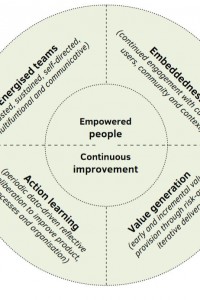“The success of digital development projects is determined by how well they link to, and resonate with, cultural, physical, economic and political environments.”
May 2016 End date
March 2017
Issue
As we as a development community invest more and more in finding ways to use technology for development, we are also learning more about the key reasons Information and Communication Technologies for Development (ICT4D) projects fail, and how we can address common issues. These include the ‘design–reality gap’: the mismatch between the assumptions of the project’s designers and factors that are specific to a country, region or community.
Project
Despite common issues, some T4T&A initiatives have delivered meaningful results. These tend to be driven domestically and involve many players – governments, civil society, international agencies, the private sector – working together to deliver real progress.
This research project will examine recent efforts to bring a more politically and culturally aware approach into development efforts. It will explore the principles at the heart of digital technology and examine the relevance of these principles for successful T4T&A.
Partner
The lead researcher on this project is Ben Ramalingam, at the Institute of Development Studies. IDS is a leading global institution for development research, teaching and learning, and impact and communications, and is based at the University of Sussex, UK.
Learning
In the first of a series of blogs from this project, Pedro Prieto Martin reflects on adaptiveness in T4T&A initatives and what it contributes to their success or failure. In the second blog, 'On doing the right thing right', he reflects on initial findings from the interviews carried out for the research, and shares some of the discussions that took place at the project workshop in November 2016.
Publications
-
 View publication
View publication
Doing digital development differently: lessons in adaptive…